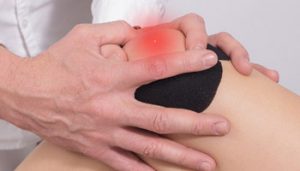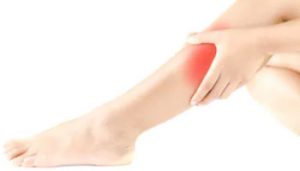Muscle Cramps While Swimming? Treatment & How to Avoid it
What Are Muscle Cramps?
A muscle cramp is a condition of contraction of muscles in which certain nerves get pulled due to certain body movement that can be caused due to various reasons.
 Though nerve stretching is one of the main reasons for muscle cramps, there are a couple of other conditions as well that causes a particular muscle to contract.
Though nerve stretching is one of the main reasons for muscle cramps, there are a couple of other conditions as well that causes a particular muscle to contract.
Although muscles cramps are not harmful, they can cause severe pain for a small, amount of time. As a result, you can’t use the affected muscle for a particular period.
Surely a condition you don’t want to suffer while swimming, there are ways to avoid muscle cramps.
Causes of Muscle Cramps While Swimming:
It usually happens due to:
- Dehydration: coaches usually ask their players to drink more and more water as they do intense exercise. And they lose more water than ingesting.
- Muscle strain: overuse of a particular muscle while moving your arms and legs to and fro while swimming to maintain the speed with the competitors.
- Muscle fatigue: to swim better, the players go to the gym to make the perfect body tone. They lift heavy weights etc. And when they use their legs and arms in swimming, there are more chances of contraction of muscles.
They jump and bite you out of nowhere and leave you gasping in between the competition.
Due to which a person cannot use the particular muscle due to the contraction of that muscle.
That contraction causes severe damage sometimes, and a person is unable to perform his daily tasks with ease.
It causes you discomfort and can turn into swelling or redness. Muscles become weak, and it causes the pulling of muscles on and off.
This is the time to need to see a doctor and not to try self-medication to prevent more pain, although muscle cramps are rarely serious enough to see a doctor.
Precautions on How to Deal With Muscle Cramps:
 Muscle cramps that occur in heel or toes are easy to overcome, but the ones in calf, neck or hamstring (one of the three posterior thigh muscles in between the hip and the knee) are the worse and difficult to handle.
Muscle cramps that occur in heel or toes are easy to overcome, but the ones in calf, neck or hamstring (one of the three posterior thigh muscles in between the hip and the knee) are the worse and difficult to handle.
After stretching out on the pool deck for a while, you slide back in the water and do the rest of the workout on half of the speed.
There are little basic precautions to take to avoid muscle cramps. That is:
- Stay hydrated: drink at least a liter of water 60 minutes before competition or practice, so all the fluids are absorbed and available at the time of need.
- Use salt: if you sweat a lot, add a pinch of salt in your water to avoid cramping up
- Stretching: gently stretching the affected area can help in soothing the soreness and immediate pain.
- Be intense accordingly: cramps usually happen when we push ourselves way harder than required or more intense than we are trained. Therefore, it’s not suitable for an average experienced person to be more intense than required.
However, if you help yourself accordingly, you won’t be suffering from any pain.
